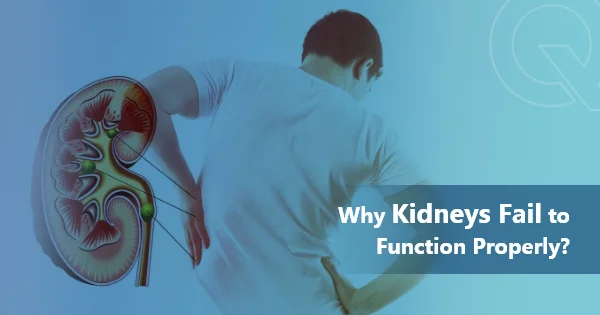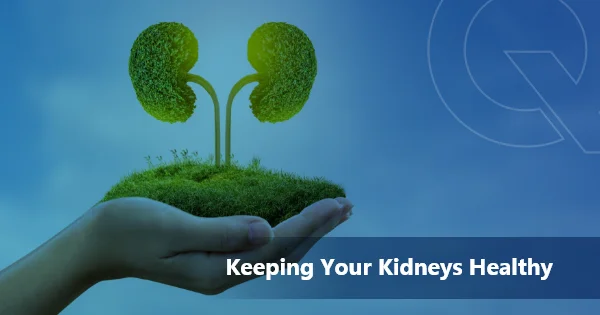Most of us know that the major function of our kidneys is to remove toxins and excess fluid from the body and they play a key role in maintaining a stable balance of body chemicals. They also produce hormones that affect the functioning of other organs. For instance, a hormone produced by the kidneys regulates the production of red blood cells. But, what happens when your kidneys stop functioning properly and what causes hindrance in their functioning?
When your kidneys don’t work properly, you may develop kidney failure. When they stop functioning, harmful wastes and fluids can build up in your body, your blood pressure may rise, and your body may not be able to make enough red blood cells.

Types of kidney diseases:
Chronic Kidney Failure – A gradual loss of kidney function that results from a long-term disease. It is the most common type of kidney failure, which cannot be reversed, but can be managed through medicines, regular checkups and dialysis.
Acute Kidney Failure – This happens as a result of the sudden loss of kidney function due to an injury or harmful substances. It can usually be reversed if treated on time in a majority of cases.
End-stage Renal Disease – It is a condition where kidneys do not work at all or only very little. Patients with this condition need some form of renal replacement therapy, e.g. Kidney replacement or regular dialysis.
What causes kidney to stop working?
There are a number of factors that affect the functioning of a kidney. Diabetes is the most common cause of End-stage renal disease (ERSD) followed by high blood pressure. Other problems that can cause kidney failure are:
- Autoimmune diseases, such as lupus and LGA nephropathy
- Family history of kidney failure
- Nephrotic syndrome
- Urinary tract problems
There may be chances of kidneys stopping suddenly. It is called acute kidney injury or acute renal failure. The following factors can cause acute kidney injury:
- Heart attack
- Illegal drug use or drug abuse
- Not enough blood flowing to the kidneys
- Urinary tract problems
In this type of kidney failure, which is not permanent, your kidneys may go back to normal with treatment and medications.
Having one of the health problems that can lead to kidney failure does not mean that you will definitely have kidney failure. Living a healthy lifestyle and going for regular checkups can help in controlling these health problems and can also ensure that your kidneys stay healthy for long.





